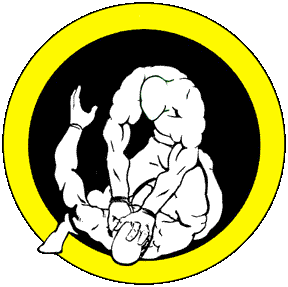Is It Time to Take TUF in a New Direction?
Posted on | September 15, 2009 | No Comments


by E. Spencer Kyte of Keyboard Kimura and MMAFightCouncil.com Writers Guild
There is no question that The Ultimate Fighter changed the mixed martial arts landscape when the first episode aired on January 18, 2005.
With that debut episode, mixed martial arts went from a pay-per-view interest of a small and dedicated fan base to something much larger. The show allowed the sport to enter the homes of people who would otherwise never have sought out the sport, introducing them to what has now become the fasting growing sport in the world.
Additionally, it stripped away the walls and gave viewers access to more than just the fights. The lives of the participants, their emotions, frustrations and personalities were put on screen, as was the rigorous training they undertake to prepare for combat.
By the time Forrest Griffin and Stephan Bonnar went toe-to-toe for 15 minutes in the finale of that first season, a whole new collection of fans and fanatics was hooked and the UFC had a bona fide hit on their hands.
As the seasons progressed, the number of viewers followed suit; more and more people were tuning in to see the fighters that could become the next household name and UFC champion. But somewhere between the wildly successful first season and Wednesday’s debuting Season 10, something changed.
While early seasons introduced future champions, Top 10 competitors and tough-as-nails contenders across every division, subsequent seasons have seen a drop off in talent and performance once the fighters leave the Ultimate Fighter house and step into the bright lights and big-time pressure of the UFC.
What has changed in the four-plus years since the show debuted to contribute to this decline in dependable talent and what does the future hold for The Ultimate Fighter?
It’s time to try to answer those questions.
When the men who would become members of Team Liddell and Team Couture first entered the Ultimate Fighter Training Center, they were a collection of unknowns to all but the hardest of hardcore fans.
Now, the roster from Season 1 yields a collection of the some of the sport’s most well-known fighters. Forrest Griffin, Stephan Bonnar, Kenny Florian, Josh Koscheck, and Chris Leben all came from that initial class, as did Diego Sanchez, Nate Quarry and Mike Swick.
Griffin went on to win the Light Heavyweight title, while Florian fought for the Lightweight title that Diego Sanchez will attempt to win later this year. American Kickboxing Academy teammates Koscheck and Swick reside in the welterweight Top 10, while Quarry was the first of the group to receive a title shot, losing to Rich Franklin at UFC 56.
Since that time, only one other champion has emerged and fewer contenders emerge from each passing season of the show. In fact, while the first two seasons produced two champions (Griffin and Rashad Evans) and four fighters who have fought for a title at one point or another, subsequent seasons have yielded very little.
Of the champions and challengers who have emerged since that second season, all three came from Season 4: The Comeback, a season dedicated to fighters searching for a return to form where the winner of each weight class was awarded a title shot.
Matt Serra made the most of his chance, defeating Georges St-Pierre, while Travis Lutter tested Anderson Silva before falling to the middleweight champ. Only Patrick Cote fought his way into a title shot outside of the stipulations of the show.
So what has happened over the time since Season 2 concluded to contribute to this dearth of title contenders?
For starters, MMA has exploded globally, giving fighters more opportunities to compete than they have ever had before. While that is definitely a good thing from the standpoint of fighters and fans alike, it leaves the talent pool to choose from when casting The Ultimate Fighter relatively shallow.
Although some of the fighters from those opening seasons came in with relatively little experience, others had been plying their trade inside the cage for some time, with guys like Joe Stevenson, Stephan Bonnar, Melvin Guillard and Diego Sanchez all having numerous fights under their belts.
Season 1 winner Forrest Griffin had a 9-2 record before securing his tenth victory in the historic finale against Bonnar. Conversely, when Griffin was a coach on Season 7, the eventual winner Amir Sadollah earned his first professional win when he upset C.B. Dollaway in their battle for the six-figure contract.
How did Sadollah follow-up his life-changing win?
After missing over a year due to various injuries, he lasted just 29 seconds before the referee called his long-awaited debut at UFC 101.
The likable Virginia native isn’t the only former cast member to struggle since leaving the Ultimate Fighter house. In fact, a number of fighters who have been given an opportunity to compete inside the Octagon following their time on the show have come away on the wrong side of the results.
Just four fighters remain under contract from the cast of Season 4, the same number that have survived from Season 6, with winner Mac Danzig’s future uncertain following three straight losses.
While the stars of the earliest seasons strung together wins and fought their way into contention, or at least a reasonable level of success inside the cage, the past few seasons have yet to yield a single fighter close to contender status.
Krzysztof Soszynski has had the most success following his time on Season 8, reeling off three straight wins before losing to Brandon Vera by Unanimous Decision at UFC 102. But his success only goes to validate the importance of experience once the show ends, as the Winnipeg native had 24 fights to his name prior to joining the UFC.
As diligently as the UFC works to hype and promote the stars who emerge from the show, it’s become clear that experience and dedication once the cameras are off is far more important to future success than any compliments Dana White bestows on cast members or the title of The Ultimate Fighter.
In an interesting twist on the experience angle, the upcoming season offers an intriguing mix of unproven newcomers and seasoned veterans alike.
Three cast members (Matt Mitrione, Demico Rogers and Wes Shivers) have yet to make their professional debuts, while early favourite “Big Country” Roy Nelson is a former IFL Heavyweight champion and Wes Sims has more than 30 fights to his credit.
Whether any of the 16 cast members of the upcoming season will emerge as true title contenders is yet to be determined. The same can be said about the direction of the show moving forward.
Make no mistake about it: The Ultimate Fighter is still an exceptionally valuable tool for fighters to gain recognition and opportunities to fight at the highest level.
But while the show clearly still serves a tremendous purpose, perhaps a shift in philosophy in coming seasons – provided there are more seasons on the horizon – is warranted.
Becoming a household name through a three-month stint on Spike TV and being able to compete on the highest level are two very different things.
As much as the UFC would like to capitalize on the recognition and interest these fighters garner from their time on television, a better course of action for the long-term success of both the fighters and the company would be to bring them along slowly.
The proof can be seen in the comparison of fighters who have won various seasons to those who had some success and were given an opportunity despite not emerging as The Ultimate Fighter.
Taking five eliminated fighters(George Sotiropoulos, Ben Saunders, Tim Creduer, Matt Brown and Soszynski) and matching them up with the five winners to emerge from Seasons 5 through 8 (Nathan Diaz, Mac Danzig, Sadollah, Ryan Bader and Efrain Escudero), the eliminated fighters come away 15-3, while the champions have 12 wins and 6 defeats.
Granted, the champions have faced stiffer competition than the other group for the most part, but what is better: having your household names losing to tougher competition or allowing them to build on their success and hold the public’s interest?
While the UFC certainly doesn’t want to serve their Reality TV champions a series of tomato cans who the public sees right through, putting them in a position to be beaten right away is arguably worse.
Just as Amir Sadollah’s loss at UFC 101 immediately diminished his stock, recent winners Efrain Escudero, Ross Pearson and James Wilks could all face the same fate should they fall in their first foray into the cage since being crowned The Ultimate Fighter.
Losses for all three are not unimaginable; Escudero faces Cole Miller this coming Saturday, while Pearson will have to deal with veteran Aaron Riley and Wilks will take on Season 7 alum Matt Brown when the UFC returns to England for UFC 105.
Such risks do not need to be taken.
Forrest Griffin and Diego Sanchez were given very favourable matchups coming out of Season 1 and each emerged victorious, as did Rashad Evans following his victory over Brad Imes on Season 2.
Why potentially sacrifice a recognizable product and potential rising star when you certainly don’t have to?
Although putting together the best fights possible is very important to the UFC, it’s hard to build future stars out of the Ultimate Fighters when they cannot come away with a win.
Instead of throwing these young and relatively inexperienced fighters into the deep end of the talent pool, would it not be more prudent and productive from a business standpoint to let them learn to swim in the shallow end first? Water wings are optional.
The Ultimate Fighter has come a long way since the UFC rolled the dice with the debut season, but as the season numbers have increased, the number of quality competitors the show has produced has dropped.
Experienced fighters are finding other avenues into the UFC or receiving opportunities in different organizations, while the newest batch of stars being produced seem to be struggling once they leave Las Vegas.
Starting Wednesday (9/16/09), Season 10 will serve as an interesting illustration of the questions that surround The Ultimate Fighter.
Maybe it will also serve as the end of the line for the pioneering program that brought mixed martial arts to the masses.
Like everything in life, only time will tell.
Tags: Dana White > fighting > MMA > Season 10 > Spike TV > The Ultimate Fighter > TUF10 > UFC > Ultimate Fighting Championship



